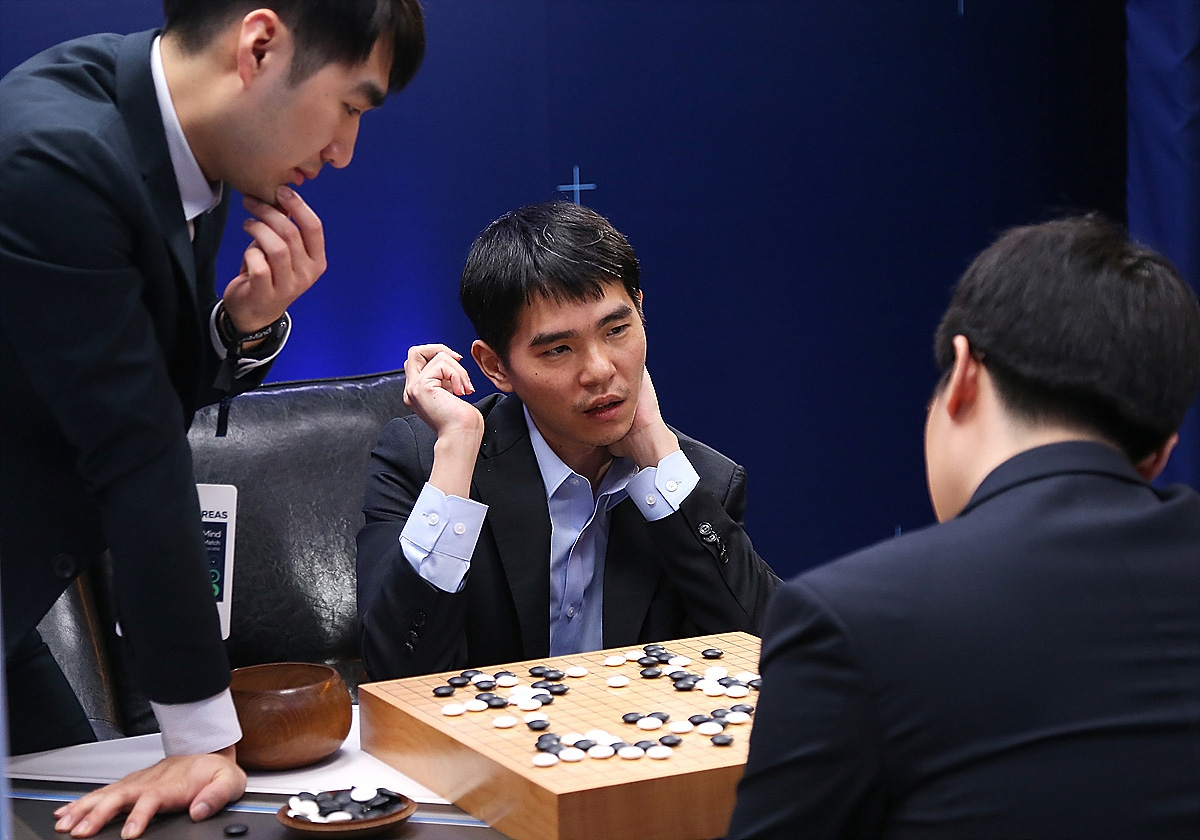
Google’s AlphaGo, an artificial intelligence system designed expressly to win the ancient Chinese game of Go, recently defeated grandmaster Lee Se-Dol four times during a five-game match. Go had been a pursuit of AI researchers for decades, and the computer scientists who achieved this impressive milestone deserve congratulations, as does Se-Dol for his vital role in this exhibition.
At these moments, it’s tempting for people to get caught up in the drama of “man versus machine,” perhaps to even worry about the implications of a “loss.” But the truth is that whenever AI goes up against the best humans in a field, there is only one real winner—humanity itself.
That’s the primary reason the world’s top computer scientists engage in these games—it helps drive major breakthroughs in technology, which in turn benefits society. The goal isn’t necessarily winning the game, but pioneering technology that ultimately advances business, society and individuals.
I know this firsthand. I worked on the IBM Research team that built the underlying technologies that fueled the chess-playing Deep Blue supercomputer during its historic matches against grandmaster Garry Kasparov two decades ago. That work ushered in a new era of high-performance computing that continues to benefit business and society to this day.
In 2011, Watson, another pioneering AI system from IBM researchers, defeated all-time Jeopardy! champions Ken Jennings and Brad Rutter. As that match ended, IBM congratulated not only the researchers who had the vision to build Watson, but humanity as a whole. A win for Watson was indeed a huge victory for humans.
Games offer great proofs-of-concept for computer scientists, and they are entertaining for fans. But the truly exciting developments in AI are those taking place in the real world, where tremendous strides in creating human-like cognitive capabilities are happening now.
The goal of these technologies is neither self-awareness nor autonomy; there is little value in trying to re-create human capability. Rather, the forefront of cognitive computing is advanced systems that learn at scale, reason with purpose and interact with us naturally. The aim? To help humans make better-informed and timelier decisions.
These systems can take the daily deluge of data that threatens to overwhelm business and society—especially relatively new and unstructured forms such as natural language, digital images, sound and sensor data—and help make sense of it all. Where traditional approaches to computing flounder, cognitive systems thrive.
Today’s most cutting-edge work is focused on augmenting humans’ ability to understand and act upon the complex systems that make up our world. Watson is an example of this advanced technology already at work. Shortly after the Jeopardy! matches aired, we set aside game buzzers in favor of tackling a series of important business and societal challenges around the world.
Some of the most promising work is already taking place in healthcare, where cognitive computing is identifying insights that can be used by doctors in their fight against deadly and chronic diseases. Cancer centers in New York, North Carolina, India and Thailand are using these systems to help their doctors in their efforts to provide personalized, evidence-based cancer care tailored to each patient’s unique needs. Hospitals in Colorado are helping patients with heart disease adopt—and stick with—heart–healthy behaviors, aiming to help prevent future costly hospital stays. And a new study in California is using technology to determine whether it is possible to predict veterans at risk for long-term PTSD and then customize treatment recommendations to help address the devastating condition.
Naturally, this leap from pop culture to actual business and societal challenges is not trivial. Games are structured and orderly, offering what is called “perfect information”—as black and white as the stones on the Go board. Real-world problems are messier—the rules are ambiguous, behaviors unpredictable and the variables infinite. Sometimes there’s no right or wrong. Decisions often have to be made in seconds, if not milliseconds, and confidence levels need to be high to optimize outcomes.
Despite these challenges, cognitive computing is already making a profound difference, augmenting the expertise of humans to help us tackle the messiness and complexity that is everyday life. What’s more, it promises to be an engine for high-value job creation, opening up entirely new domains for skilled data workers and a rich, open platform upon which developers can innovate.
Success will not be measured by how many games are won or lost, but rather the numbers of lives made healthier, students better educated, ecological disasters avoided and incidents of financial malfeasance prevented. Those are the victories that history will value most.
That’s why I’m thankful for all Lee Se-Dol did on behalf of humanity this past week. Like Kasparov, Jennings and Rutter before him, he is a pioneer in the only artificial intelligence challenge that really matters: the one to make the world a better place.
More Must-Reads from TIME
- Cybersecurity Experts Are Sounding the Alarm on DOGE
- Meet the 2025 Women of the Year
- The Harsh Truth About Disability Inclusion
- Why Do More Young Adults Have Cancer?
- Colman Domingo Leads With Radical Love
- How to Get Better at Doing Things Alone
- Michelle Zauner Stares Down the Darkness
Contact us at letters@time.com